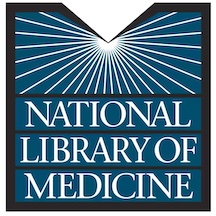 The National Library of Medicine recently posted a vast collection of documents concerning the Tuskegee Syphilis Study available for public viewing online. The collection, which consists of more than 3,000 reproduced copies of correspondence, memoranda, meeting minutes, reports, and scientific articles, constitutes a distinct historical record that has informed research led by historians, medical ethicists, and many others across a variety of disciplines.
The National Library of Medicine recently posted a vast collection of documents concerning the Tuskegee Syphilis Study available for public viewing online. The collection, which consists of more than 3,000 reproduced copies of correspondence, memoranda, meeting minutes, reports, and scientific articles, constitutes a distinct historical record that has informed research led by historians, medical ethicists, and many others across a variety of disciplines.
In 1932, a study conducted by the U.S. Public Health Service began on the effects of untreated syphilis on Black men in Alabama. Researchers conducting the study did not obtain informed consent from participants and did not offer treatment, even after it was widely available. They study continued for 40 years until a whistleblower exposed the atrocity. Some 128 Black men died of syphilis or its complications, although penicillin was discovered as an effective treatment in the 1940s.
According to Smithsonian magazine, the archive shows that subjects were explicitly and repeatedly lied to so they wouldn’t seek treatment for syphilis on their own. Even the form letters they received bore the hallmarks of a scam. They were invited to a “special examination” with government doctors waiting to give them “special attention” to “find out how you have been feeling and whether the treatment has improved your health.”
In 1974, a $10 million settlement, distributing the settlement money to the study subjects and their surviving family members. In 1997, President Bill Clinton publicly issued an apology, acknowledging that what the the United States Public Health Serice had done was “deeply, profoundly, morally wrong.”
The Tuskegee Syphilis Study continues to reverberate today. Black men’s continued mistrust of the overwhelming White medical establishment negatively impacts Black men’s decisions to seek health care.

